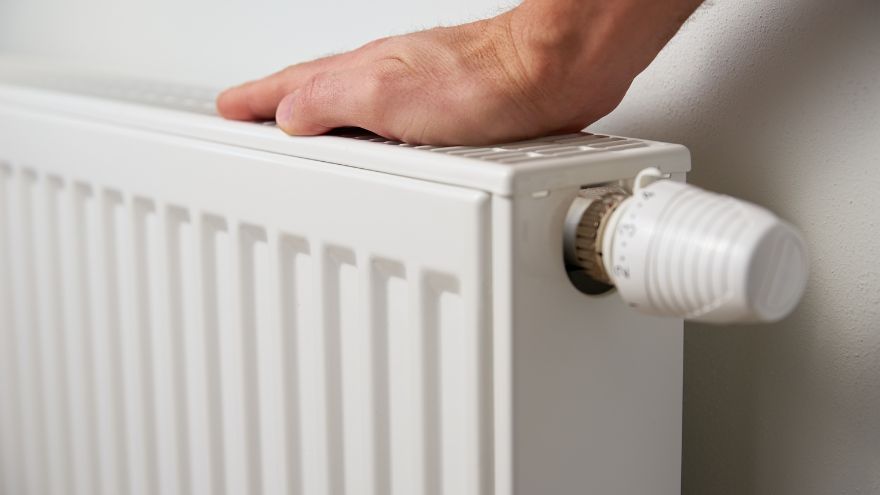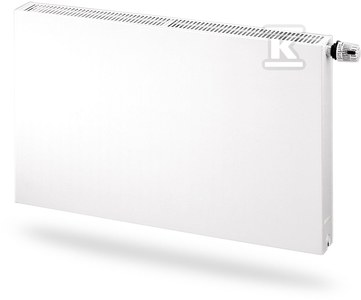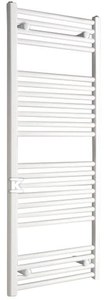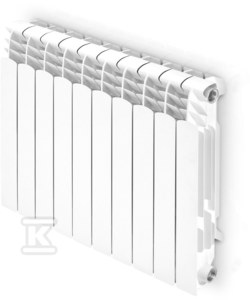Although new solutions are constantly appearing on the market, heating systems based on radiators are still the most popular. When deciding to install this type of heating, the investor must answer many questions. One of the most important concerns the selection of appropriate radiators. These should look good and at the same time ensure efficient distribution of heated air around the room.

Check out the radiators at the Onninen wholesaler
In addition to properly selected technical parameters, the material from which they are made has the greatest impact on the efficiency of radiators. Currently, you will find mainly aluminum and steel radiators on the market. What are the characteristics of both types of radiators? Which of them will be a better choice in a given case? What should you know about the influence of the material on the operation of the radiator? We discuss these issues in a new article.
When are steel radiators best?
The main reason for choosing steel radiators is their versatility. They are available in various sizes, shapes and types of construction (platform and ladder), which allows for easy adaptation to various conditions and spaces. This diversity also allows you to easily match the heating to any room decor.
 Another advantage of steel radiators is efficiency. Even small models are able to heat large interiors. Thanks to their low weight, their installation is relatively simple. Steel models are also very resistant to mechanical damage. They can be used without any problems in places such as workshops, industrial plants or public buildings.
Another advantage of steel radiators is efficiency. Even small models are able to heat large interiors. Thanks to their low weight, their installation is relatively simple. Steel models are also very resistant to mechanical damage. They can be used without any problems in places such as workshops, industrial plants or public buildings.
The biggest disadvantage of steel radiators is their susceptibility to corrosion. They may be damaged if they come into contact with poor quality water in the installation. They therefore require regular maintenance and, if necessary, treatment of the water entering the installation. Due to the fact that air humidity may accelerate corrosion processes, their use in bathrooms is not recommended.
Advantages of heating with an aluminum radiator
When it comes to the advantages of aluminum radiators, the most important is their ability to quickly and effectively transfer heat to the room. This material also heats up quickly. The design of aluminum radiators enables effective heating of rooms, and low thermal inertia makes them an ideal solution for installations with solid fuel boilers.
 Unlike steel models, aluminum radiators are also resistant to corrosion. They can be easily used in places with high levels of humidity, and their operation is not affected by low water quality. On the other hand, aluminum is less durable and is more easily damaged mechanically. Therefore, if in a given place the material may be exposed to impacts or falling objects, a steel radiator will be a better solution.
Unlike steel models, aluminum radiators are also resistant to corrosion. They can be easily used in places with high levels of humidity, and their operation is not affected by low water quality. On the other hand, aluminum is less durable and is more easily damaged mechanically. Therefore, if in a given place the material may be exposed to impacts or falling objects, a steel radiator will be a better solution.
The last important advantage of radiators is their lightness. Thanks to it, products of this type can be mounted on walls with low load-bearing capacity. Carrying them to high floors or maneuvering during installation in hard-to-reach places - e.g. under a windowsill or in narrow rooms - is not a problem.
When deciding to install aluminum radiators, remember that this material tends to electromechanical corrosion in contact with copper. To prevent such problems, it is necessary to use Teflon washers.
Is it better to choose a steel radiator or an aluminum radiator?
Both steel panel radiators and the solutions used in KFA aluminum radiators have their advantages and disadvantages. Their use will also be justified in slightly different situations. The reason for using steel models is primarily the risk of mechanical damage. A wide selection of variants allows you to choose a radiator suitable for virtually any interior - regardless of its volume, shape and investor's budget.
 The aluminum radiator, in turn, is resistant to corrosion, which allows it to be used without problems in rooms with high levels of humidity or in installations powered by water with unfavorable parameters. Aluminum radiators also ensure that the heat is evenly and quickly distributed throughout the interior, which will certainly be appreciated by investors looking for a way to heat quickly. The low weight, in turn, makes the 10-fin aluminum radiator easy to install - even in difficult conditions.
The aluminum radiator, in turn, is resistant to corrosion, which allows it to be used without problems in rooms with high levels of humidity or in installations powered by water with unfavorable parameters. Aluminum radiators also ensure that the heat is evenly and quickly distributed throughout the interior, which will certainly be appreciated by investors looking for a way to heat quickly. The low weight, in turn, makes the 10-fin aluminum radiator easy to install - even in difficult conditions.
As you can see, both types of radiators have different applications, and the choice of a specific type should be preceded by a thorough analysis of the specificity of a given investment. When making a decision, you should take into account primarily the quality of water in the installation, air humidity in a given room and the degree of exposure to mechanical damage. It is also worth familiarizing yourself with the design of the heating installation and checking whether it ensures trouble-free installation of heavy radiators. If not, models made of aluminum will work better.
Steel radiators and aluminum radiators in the Onninen wholesaler
At the Onninen hydraulic wholesaler , we offer standard panel and ladder radiators. A wide selection of models makes it easy to choose a product that will ensure thermal comfort in any room. Our offer includes, among others:
- PURMO PLAN FCV22 steel radiator : steel plate radiator with a smooth front plate with a heating power of 1006W (75/65/20°C). It can be connected from the bottom or by removing the valve insert from the side. It is distinguished by a perfectly smooth finish of the front plate. Thanks to its sparse style and a wide range of available colors, it is extremely universal - it fits both modern and classic interiors;
- ONNLINE PB 80X050 bathroom radiator : a straight steel ladder radiator, designed for a closed central heating system secured with a diaphragm expansion vessel. It works in an installation made of copper, steel, plastic, powered by a gas, oil, electric boiler, a district heating network, a solar collector and a heat pump. The radiator is connected from the floor using 4xGW 1/2" connectors;
- FEROLLI PROTEO 450 aluminum radiator, aluminum radiator with a heating power of 92W (for 75/65/20) and white color. The dimensions of 1 rib are: height 431mm x width 80mm x depth 100mm. The working pressure is 6 bar and the connection diameter is 1" internal thread. An excellent choice for investors looking for a radiator that quickly distributes thermal energy.